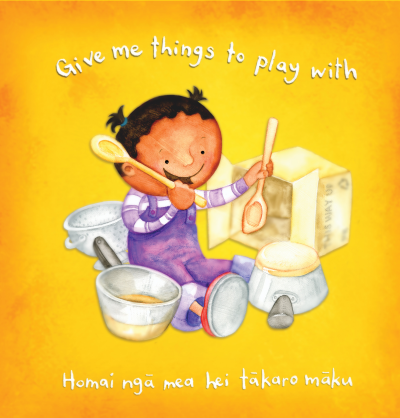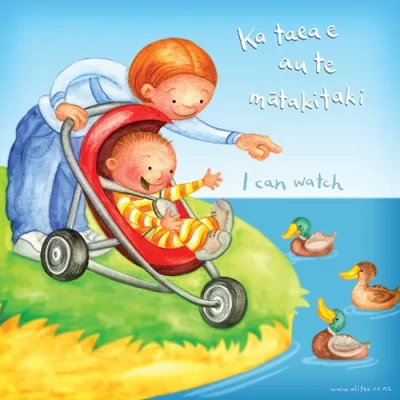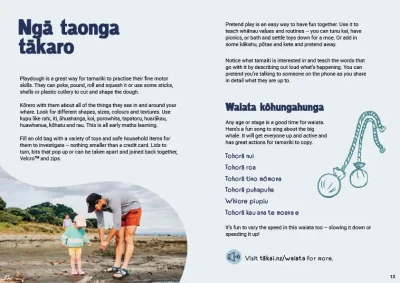
Made up games
Pretend play is important for children's learning and development, and a great way to have fun together.
Whānau need to know that children pretend anytime, anywhere. They act out things from real life, and from stories and television.
Pretend play helps children learn about the world and the people in it. They watch what you’re doing and copy it. Then they practise it over and over again as they become familiar with the role.
Look at pages 12–13 of the Whakatipu booklet Te Kōhuri 1 together. It mentions pretend play as an easy way to have fun together.
Ask whānau:
- What sort of things have you seen your tamaiti do in play that reminds you of your own or someone else’s behaviour?
- What can you do to encourage the activities mentioned here?
- What can you do to encourage your child to take part in other everyday household activities?
Try an activity
Play dress ups
Giving tamariki the opportunity to dress up and pretend to be someone else is a great way to stimulate their imagination and make sense of their world.
Ask whānau if they remember playing dress-ups when young. Talk about what things they enjoyed and how they might be able to take part in their child's imaginary play. Ask whānau if they’re able to collect suitable materials. Here are some suggestions:
- dressing-up clothes, hats, coats, and bags
- pieces of materials, blankets, cushions and cardboard boxes
- things for playing shops, schools and hospitals.
Sometimes children act out things in their lives that concern them. This is a safe way of working out real fears as well as learning how it feels to be someone else.
Pretending is a way of learning and a way of making sense of the world. Imitating is the start of imagination. Children have well-developed fantasy lives, and games are played to test, practise and discover rules and roles.
Helpful resources for whānau
-
The importance of pretend play
Scholastic
This page from Scholastic Parents shares how imagination-driven play builds children's developmental skills.
-
Pretend Play: Busy Day at Toddler's Office<
Pretend Play: Busy Day at Toddler's OfficePretend or imaginative play is an important part of a healthy child's development and definitely a better choice than passive watching of TV or videos.














